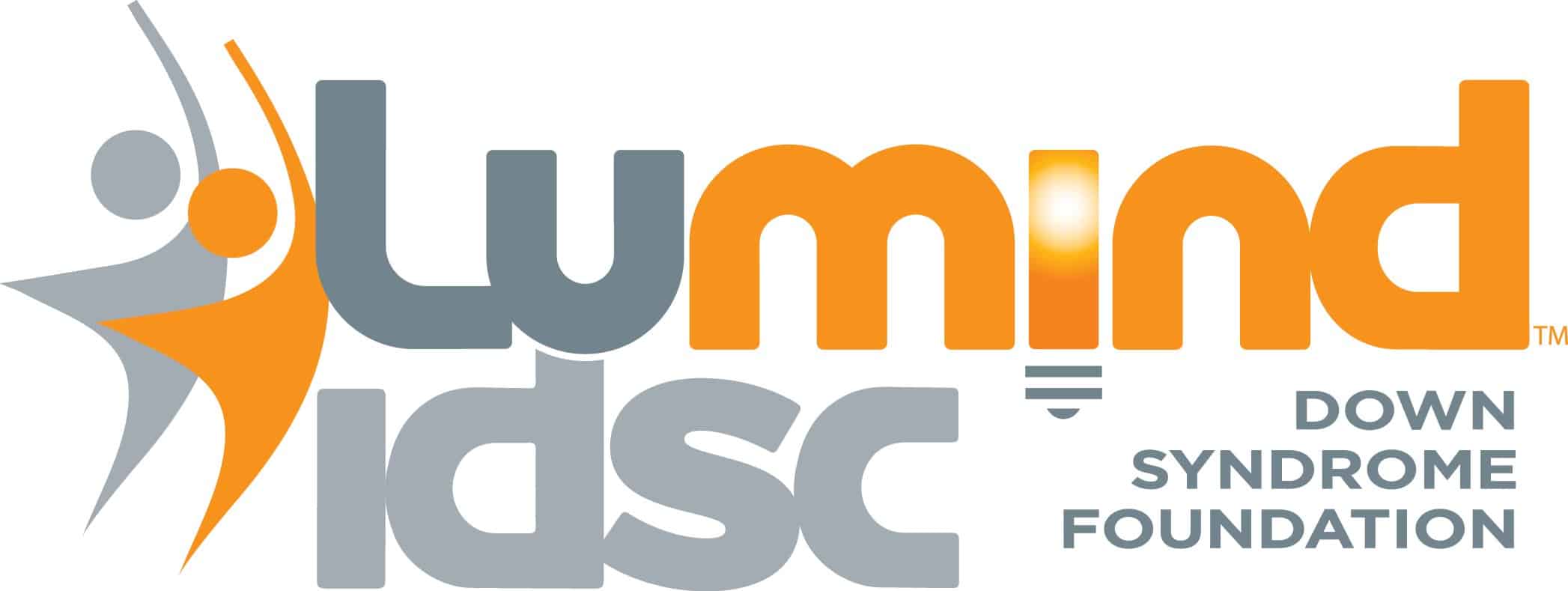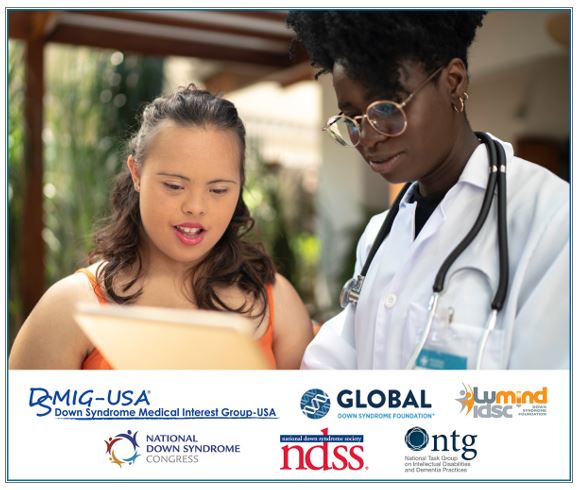
NATIONAL DOWN SYNDROME ORGANIZATIONS COMBINE EFFORTS TO PUBLISH
Q&A ON COVID-19 AND DOWN SYNDROME
An Important Resource for Families During Unprecedented and Uncertain Times
PLYMOUTH, MINN., DENVER, BURLINGTON, MASS., ATLANTA, NEW YORK CITY, HAMDEN, CONN.
March 27, 2020 – Today, an important Q&A on COVID-19 and Down syndrome was published by a consortium of national Down syndrome organizations: the Down Syndrome Medical Interest Group-USA (DSMIG-USA), Global Down Syndrome Foundation (Global), LuMind IDSC Foundation (LuMind IDSC), National Down Syndrome Congress (NDSC), National Down Syndrome Society (NDSS), and National Task Group on Intellectual Disabilities and Dementia Practices (NTG).
“The unprecedented spread of the Coronavirus Disease 2019 (COVID-19) presents the world with a unique challenge and, in our case, calls for a united response to better understand its impact on the Down syndrome community,” says a consortium spokesperson. “While there are still many unknowns, we believe this Q&A is an important resource for individuals with Down syndrome and their families, and we will provide updates as we learn more.”
This new resource was reviewed by numerous clinicians, advocacy organizations and family members of individuals with Down syndrome, and includes answers to the following general questions:
- How can I help prevent the spread of the virus?
- What common symptoms should I look for?
- What should I consider when it comes to decisions made by, or on behalf of my loved one with Down syndrome?
The key takeaway from the Q&A is that many people with Down syndrome are considered “high risk.” Based on the Centers for Disease Control and Prevention (CDC) and the National Institutes of Health (NIH), people categorized as “high risk” include those with “underlying medical conditions” that people with Down syndrome are more likely to have. Some examples are lung disease and respiratory difficulties (e.g. asthma, sleep apnea), ongoing heart disease or heart failure, obesity, diabetes, or having lower immune function (e.g. people undergoing cancer treatment or taking drugs for rheumatoid arthritis or lupus that lower immune function).
“As a parent of a young child with Down syndrome I am wondering if he is higher risk and what that even means,” shares Kim Knight of Marietta, GA. “We are glad this resource will give us some advice specific to Down syndrome.”
Jacqueline Olimpio from Olney Maryland. “I am grateful for any advice that can help me navigate this difficult time.”
Q&A organizers are committed to updating this important resource in the following weeks as more information becomes available about COVID-19, regulations related to the disease, and how this affects people with Down syndrome.
This Q&A is informational only and not intended to provide medical advice or related advice. This Q&A should NOT be considered a substitute for the advice of medical professionals or other professionals. Consult with your doctor or other healthcare professional(s) for medical advice.
The Q&A resource has the additional support of the following national and international organizations: Down Syndrome Affiliates in Action, Gigi’s Playhouse, International Mosaic Down Syndrome Association, Jerome Lejeune Foundation, and T21RS.
To access the resource, families, friends and professionals can visit any of the consortium member websites hyperlinked below, and download a PDF or share the PDF by email, text or social media.
Families, friends, and professionals can visit any of the consortium member websites hyperlinked below to download a PDF or share the PDF by email, text, or social media. An Expanded Version and an Abbreviated Version of the Q&A are available in English and a Spanish version will be available in the next two weeks.
About the National Consortium
Down Syndrome Medical Interest Group-USA (DSMIG-USA)
DSMIG-USA is a group of health professionals committed to promoting the optimal health care and wellness of individuals with DS across the lifespan.
Global Down Syndrome Foundation (GLOBAL)
The Global Down Syndrome Foundation (Global) is the largest non-profit in the U.S. working to save lives and dramatically improve health outcomes for people with Down syndrome.
LuMind IDSC Foundation (LuMind IDSC)
The LuMind IDSC Foundation is a non-profit organization that accelerates research and empowers families to improve health, independence and opportunities for people with Down syndrome.
National Down Syndrome Congress (NDSC)
The National Down Syndrome Congress (NDSC) is a not-for-profit organization dedicated to an improved world for individuals with Down syndrome.
National Down Syndrome Society (NDSS)
The mission of the National Down Syndrome Society is to be the leading human rights organization for all individuals with Down syndrome.
National Task Group of Intellectual Disabilities and Dementia Practices (NTG)
To advocate for services and supports for people with intellectual disability and their families who are affected by Alzheimer’s disease and dementias.
Press Contacts
LuMind IDSC: Marly Chevrette [email protected] c: (781) 825-1303 GLOBAL: Rejena Carmichael [email protected] c: (240) 603-5494 NDSC: Rhonda Rice [email protected] c: (678) 770-6641 NDSS: Michelle Sagan [email protected] c: (202) 848-5409 NTG: Matthew P. Janicki, Ph.D. [email protected] c: (518) 421-3520 DSMIG-USA: Emilie Perkins [email protected]

